Cambridge
CD-4
The lampization job made by Clive
Wills from Ireland, based on my "kit".
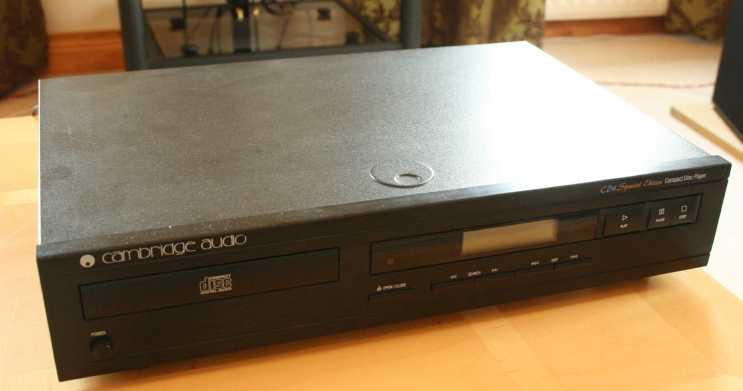
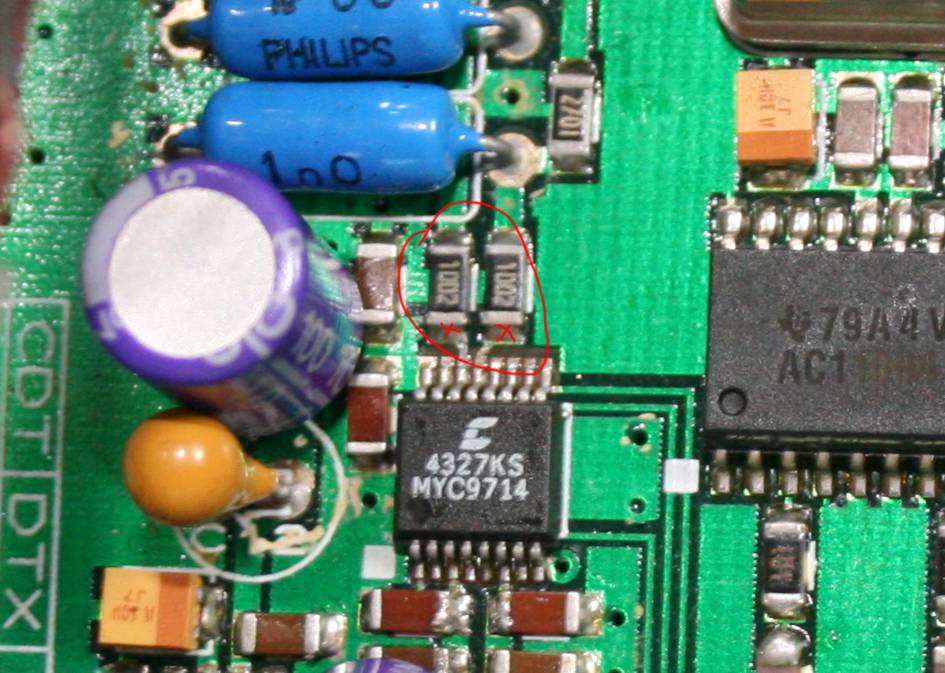
The signal points for stealing of the music from the DAC chip.
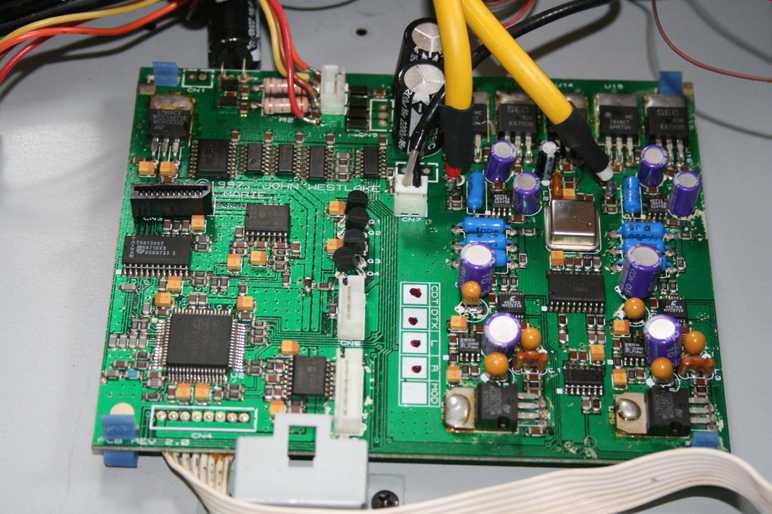

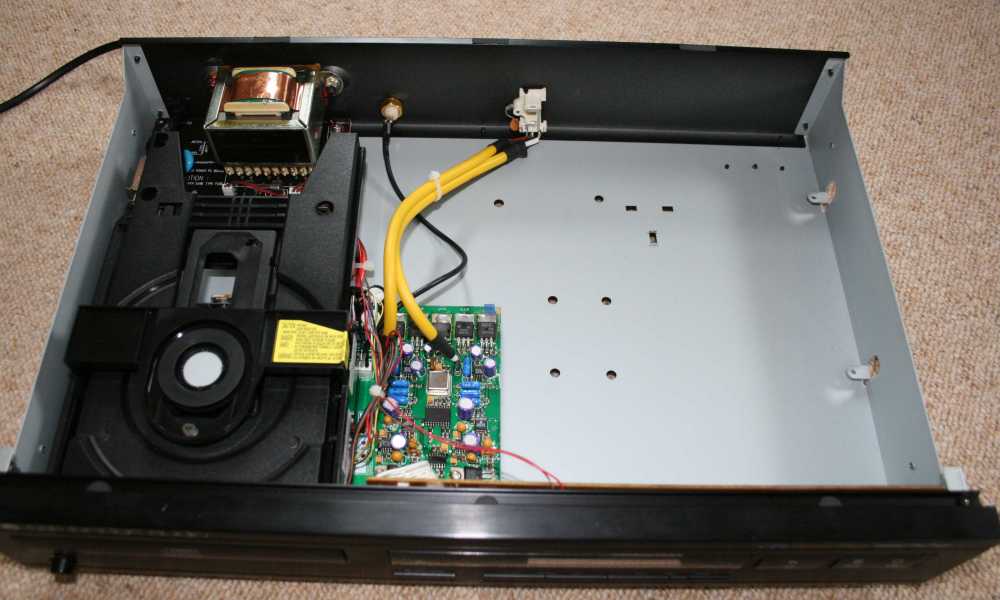
Is there lotsa space or what ?
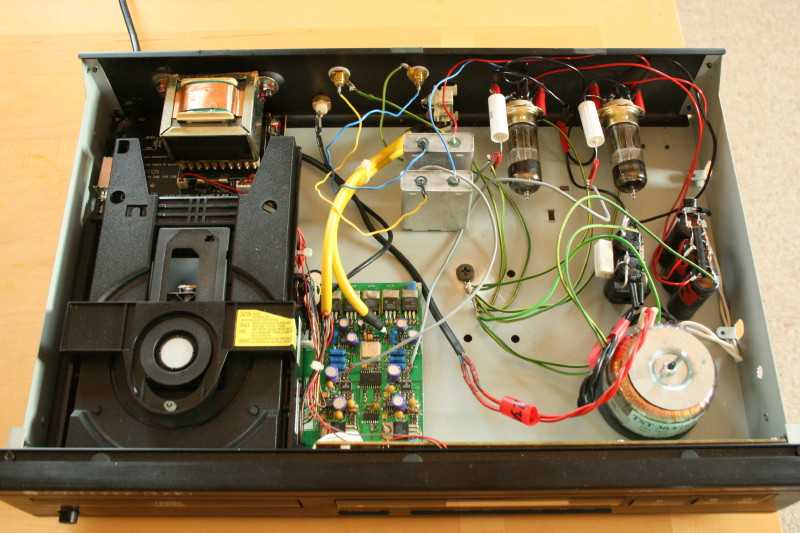
Good use of the empty space ...
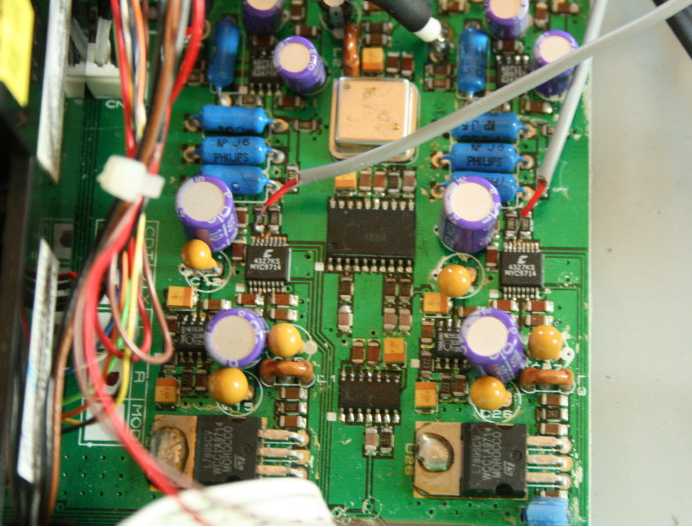
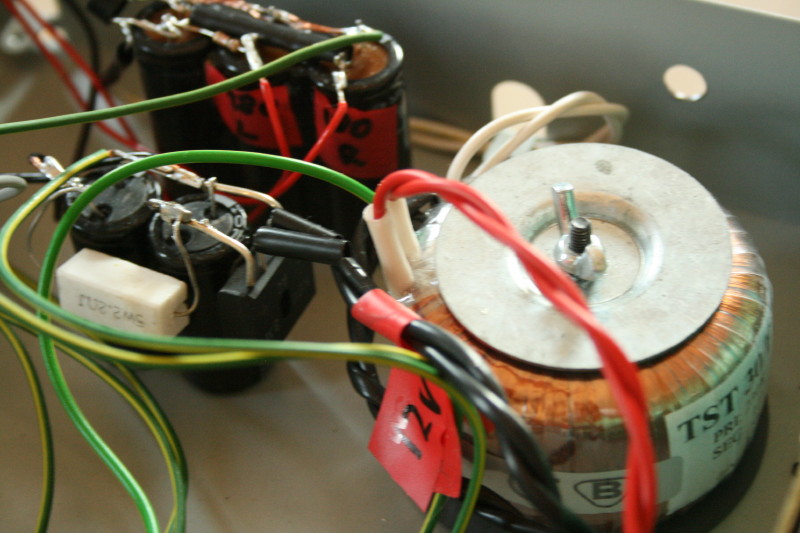
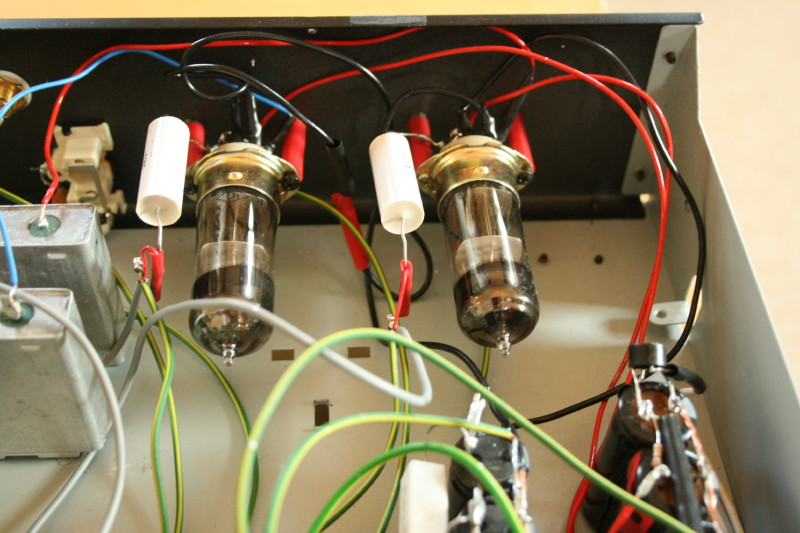
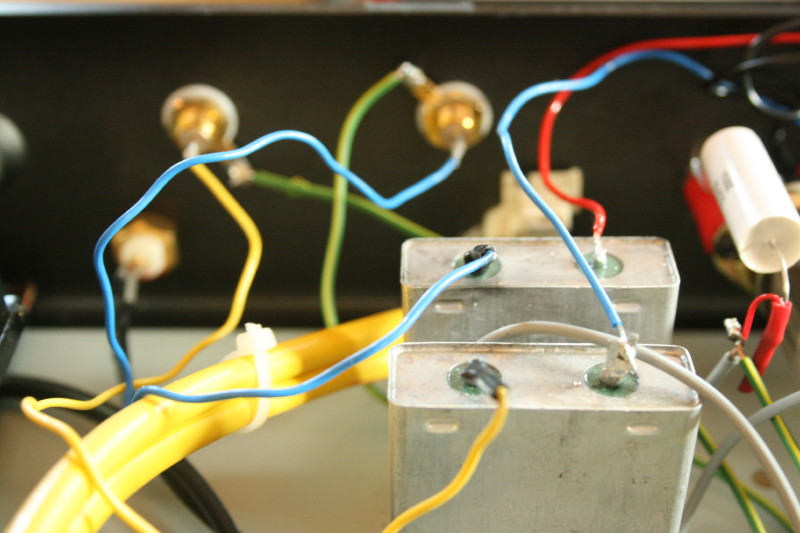
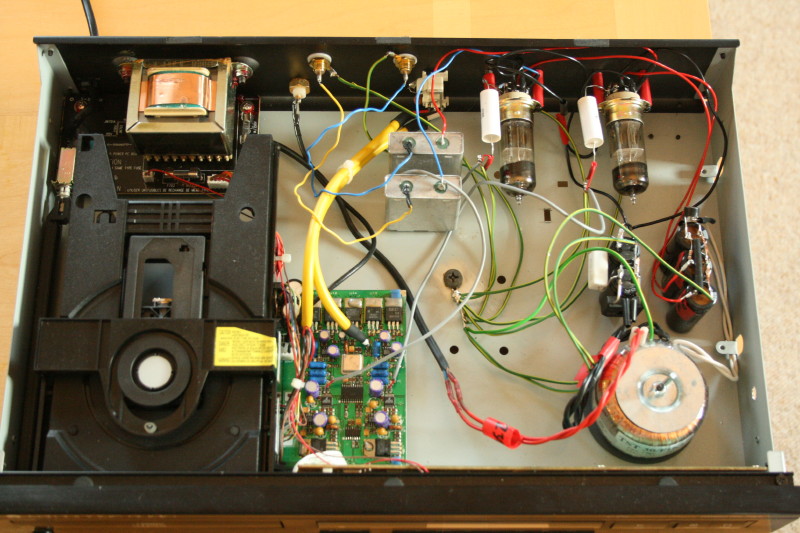
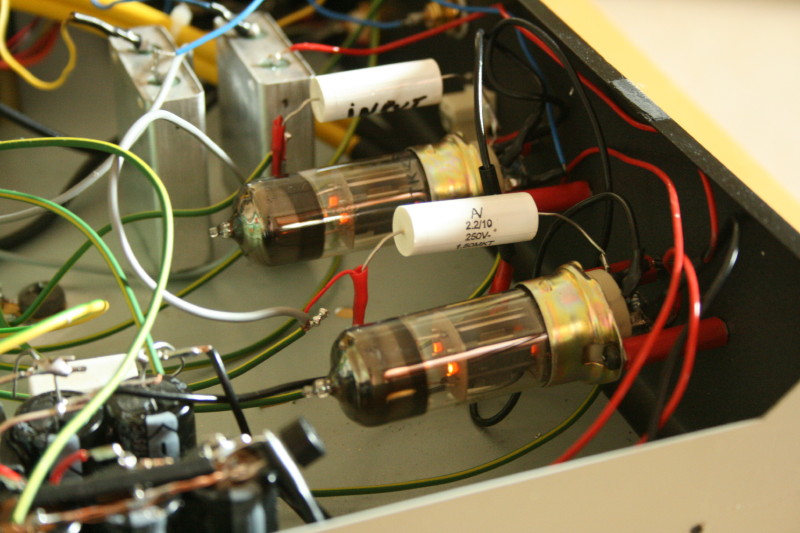
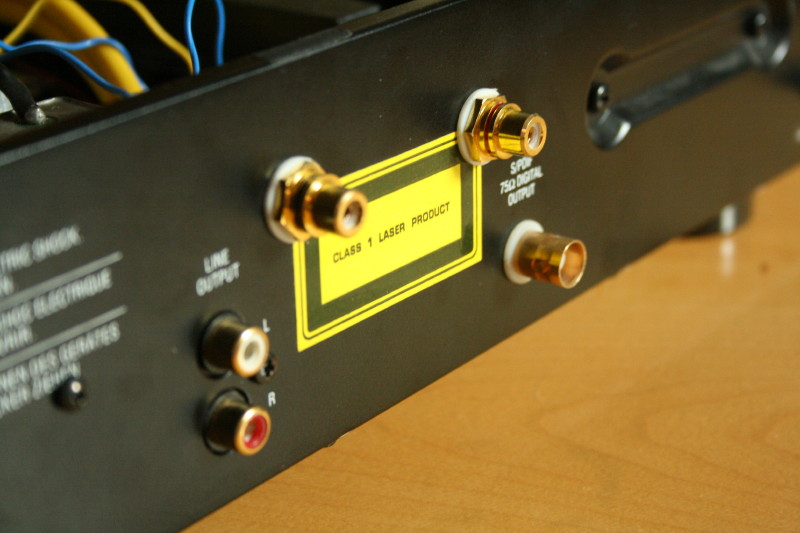

CLIVE wrote this information ...
The path to ‘audio nirvana’ is punctuated by periods of change,
development and plateaus of just sitting back and enjoying the music.
My own personal odyssey began around 15 years ago when I was given some
kit by an uncle who no longer had room for his mid 1980’s pre CD
Pioneer system. I remember being particularly impressed by the enormous
speakers that came with it, massive three ways with a 12” bass, 5” mid
and some tweeter with plastic vanes over it for no reason apparent to
me anyway.
I bought my Cambridge Audio CD4se a couple of years later from a local
supplier as my first ‘proper’ CD player, until then I had been using
portable devices plugged into the old pioneer kit. Soon after I changed
the amp and speakers as the foam surrounds had started to break up and
the amp was becoming unreliable.
After listening to some different speakers and amps, I found a second
hand audiolab 8000a integrated and a pair of Tannoy mercury M2’s. Both
of which were praised by the audio press at the time. The Cambridge was
felt to be well up to the job of supplying sounds to the rest of the
components.
I was satisfied with this set up and remained so for a number of years,
girlfriends, house moves and even got past the ‘Wife Acceptance
Factor’, that is until I bought a Linn LP12 and started bolting
supports to walls and insisting that the speakers were not shoved in
corners and hidden by plants and even curtains.
The turntable did however complicate the situation by sounding better
than the CD player even through its modest amp and speakers. There was
more space and truth to the sound that I wasn’t getting from the
Cambridge. The upgrade bug had bitten.
After a change on personal circumstances that removed the Wife
Acceptance Factor from all decisions, hifi or otherwise, I felt able to
explore the issue further. I quickly replaced the amp and speakers with
a passive pre amp from Nene Valley Audio, a pair of Quad II valve mono
blocks and a pair of hard to find Triangle Ellypse speakers.
One problem, the Linn LP12 now sounded even better, in fact with the
beautiful valve phono stage I had acquired, it sounded really good. The
CD on the other hand sounded pretty much the same. I tried a number of
options with the help of a friend with a large collection of unused kit
from Meridian, Teac, Marantz etc and eventually found a modern Marantz
player with some PSU, Clock and Capacitor upgrades. This sounded much
better than the Cambridge but still some way behind the Linn. I was
happy enough with this arrangement, concentrating on Vinyl and building
up a modest collection of old Miles Davis, Steely Dan and Joni Mitchell
LP’s and settling back to enjoy the music.
It is far too easy, especially if one subscribes to three different
hifi magazines, to get caught up listening to your gear rather than the
music you have spent plenty of money on. I know a few people who,
despite having spent literally thousands on their systems, are never
able to enjoy them because they believe that for a few dollars more,
they can get something better. And then the next issue of ‘Unattainable
hifi Monthly’ comes out and they come to the conclusion that what was
the cutting edge last month is now so hopelessly out of date and
insulting to their ears that they must get hold of whatever gadget is
being peddled this month, money no object. As a consequence, they never
enjoy the music, in some cases rarely listening to a whole track let
alone an entire album.
I was content to sit back and enjoy records and CD’s but was still
curious as to how there was so little improvement in CD when the
fundamentals of the system were changed.
I happened upon the Lampizator website after seeing a player on eBay, I
think it was a California labs something or other but it had a couple
of valves sticking out of the top. I emerged from the site a couple of
hours later with my head full of ideas and questions and so the process
began. I felt I had nothing to lose by trying this out in the ‘retired’
Cambridge that I had never got rid of.
After some time I established email communication with Lukasz and a kit
of parts was sent out. All arrived neatly packed in a substantial blue
velvet covered box ready for me to install.
The inside of the Cambridge did make me laugh, most of it is in fact
empty as you can see from the photographs but this at least gave me
plenty of space to fit the Lampizator. An evening of soldering,
drilling holes in the chassis and hoping the whole thing wouldn’t
explode and I was done.
I had been advised by Lukasz that the DAC chip in the Cambridge wasn’t
the best available but it might yield some interesting results. I was
not prepared for what I heard though. Even from cold, it sounded
bigger, not just in volume; the output is very hot compared to a
standard line output, I would guess it is more like the +4dbU that most
professional equipment uses rather than the standard -10dbU for
consumer kit.
Before making any serious judgments on the sound, I left a CD on repeat
for a while. I intended to leave it overnight but couldn’t resist after
an hour or so. A couple of CD’s later and I was sitting in ‘the magic
chair’ actually laughing at what I was hearing. CD’s I thought I knew
well suddenly had extra voices, instruments and even parts I had never
heard before. The recorded acoustic was now reproduced with much more
truthfulness in my room, extra cues such as being able to tell a nylon
tipped drumstick from a wooden one on a cymbal, pianos had a far better
image, being able to see which way the pianist is facing etc.
Now having spent a week or so listening, I can genuinely say that this
has easily been the most rewarding upgrade I have made yet. Bass had
not become louder but there is more weight to it, it seems to go lower
but doesn’t swamp the rest of the track. Imaging is wider and
crucially, deeper extending far beyond the boundaries of the room if
the recording demands it. Midrange detail and top end air and sparkle
are breath taking. In short, this player does not get in the way of the
music; it steps aside and waves the music through with a bow and a
flourish.
I now refer to the Cambridge as a music player rather than a CD player
as the medium is now irrelevant, to bring us back to my main premise,
this pursuit is about enjoying music and for me the gear is secondary.
To illustrate this, I’m not in the least bit worried on which format a
recording is on, CD or Vinyl, it’s going to be great in my listening
room.
I took the player to a friend’s house soon after it was completed; he
has an extremely good system, the sound of which has always deeply
impressed me. He played a track on his player and then on the Cambridge
and by his own admission, the Cambridge had the better
sound/presentation. He has asked me to research getting his own player
done and is currently looking for a DAC to Lampizate.
To sum up, the effects of the Lampizator are not subtle, you will not
need golden ears and a mega bucks amp/speaker system to hear
microscopic differences in recorded material. You will be amazed at how
your player can sound when freed from the constraints of the rubbish
output stages in commercial designs.
It begs the question, why are CD players made in this way; surely it is
more difficult to make output stages with dozens of components than to
make a simpler one with FAR better sonic performance. I am sure
politico-economics comes into it somewhere, perhaps a cynic would
suggest that if a cheap CD player could sound this good, why would
anyone buy an expensive one?
Credit yourself with more intelligence and trust your ears. Find an old
CD player, preferably with a TDA 1541 DAC chip (next on my list of
things to do) and unleash the music you already have. While you are at
it, cancel your magazine subscriptions and spend the money on a couple
of CD’s every month.
======
After changing CD4 to Marantz 94-1
===========
What can I say?
You've done it again!! Absolutley marvellous,
they've only been on for an hour or so and I can hear them opening out
before my ears. All muddle has gone from upper bass, extra volume and a
clarity I can scarcely describe, almost too much at the moment but
things will no doubt settle down in a day or two.
Already I am
hearing micro details on familiar recording I haven't
heard before and I am going form the point where I was already saying
that about the tda1541 player stock.
BACK

